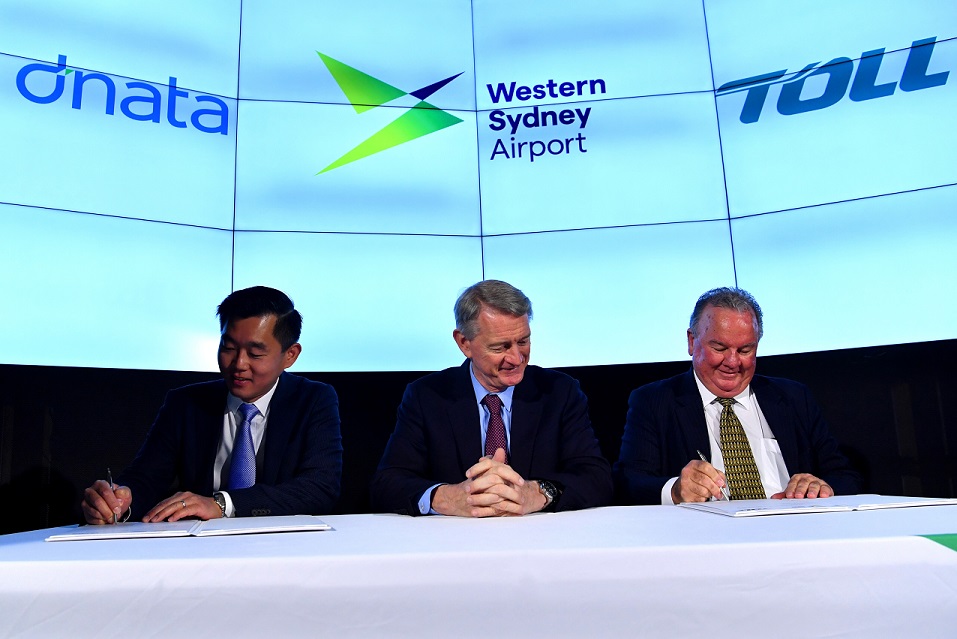Western Sydney Airport has partnered with two industry leaders, dnata and Toll Group, to collaborate on the design of its freight precinct.
It brings the number of freight industry partners already signed up to 10.
Western Sydney Airport chief executive officer Graham Millett said Western Sydney International (Nancy-Bird Walton) Airport will open up global markets to Australian exporters, supporting the NSW economy into the future.
“This freight precinct has the potential to become Sydney’s most important freight hub, generating thousands of jobs,’’ says Mr Millett.
“We’re thrilled to have two of the industry’s leaders, dnata and Toll Group, on board enabling us to optimise the functionality and design for our freight customers at Sydney’s new airport.
“Western Sydney International has the capacity to become one of Australia’s largest airports in years to come, so engaging with our customers to develop a fit for the purpose precinct upon opening and into the future is critical.
“For freight companies, it’s an enticing proposition – we can offer landside and airside freight access on a greenfield site with 24/7 operations.
“Our MOU partners can share with us what size facility they need, what technology they want and how they want it designed to optimise productivity.”
With expertise in ground handling along with other airline support services, dnata will provide a unique insight into the operations required to support both passenger and cargo services.
“Dnata is excited to partner with Western Sydney Airport in both shaping the future of freight and growing the freight market,’’ says the company’s head of cargo Terence Yong.

“This partnership enables dnata to fulfil our strategy of providing the highest level of customer service, as well as offering the most innovative solutions to the market.”
Toll Group’s experience in developing state of the art capabilities will also be invaluable in developing Australia’s newest freight hub.
“As one of the leading operators of domestic air freight in Australia, Toll is delighted to be sharing its expertise with Western Sydney Airport,’’ says Noel Prosser, the company’s group general manager of aviation.
“We recognise the significant opportunity this new airport creates to service our customers and meet the demands of our freight operations.’’
Western Sydney International, which is on track to open in 2026, will capitalise on the growing demand for Australia’s fresh produce abroad and create opportunities to export temperature-sensitive and perishable products.
“For producers across the region and beyond into regional NSW, many of which are small to medium and family owned, Western Sydney International’s 24/7 operations will be the key to growing their businesses by unlocking lucrative Asian fresh produce markets,” Mr Millett said.
The other eight major freight companies which have signed MOUs with Western Sydney Airport are Australia Post (including StarTrack), DB Schenker, DHL Express, DSV Air and Sea, FedEx, Menzies Aviation, Swissport, Qantas Freight, Skyroad Logistics and Wymap.
The first stage of the airport has the potential to process around 220,000 tons of air cargo each year through its proposed on-airport cargo facility, with multiple dedicated cargo aircraft stands.
This is set to scale up with demand, potentially handling 1.8 million tons of air cargo each year further in the future.
Australian airports currently transport more than one million tons of air cargo annually and this is forecast to grow considerably over the next decade.
